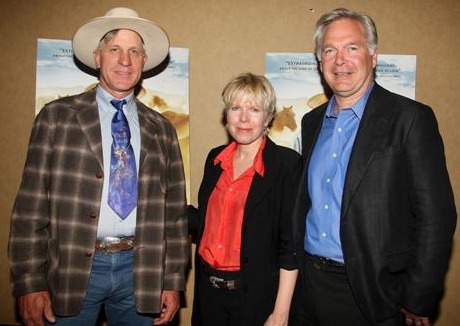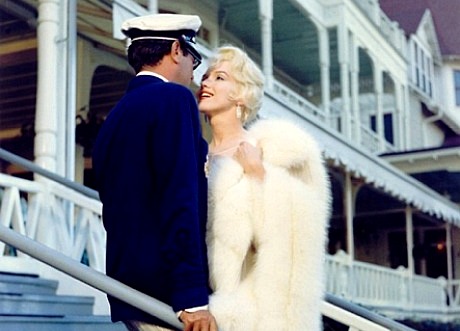The recently released Big Country Bluray is a wow, all right. It looks like real film, and offers delightful razor-sharp detail and colors that pop vividly but not inorganically, etc. I’m told that the restoration cost somewhere in the low six figures, and it certainly looks like big money was spent. I saw a very clean print of this 1958 William Wyler film projected at the Academy theatre with ample light three or four years ago, and yet somehow the Bluray is more of a thrill.
The reason for the extraordinary detail and image quality, as noted three days ago, is that Wyler and dp Franz F. Planer shot with the 8-perf Technirama process, which used a larger frame area than 35mm (but was slightly smaller than 65mm).
The large-format source makes this a major Bluray to have and to hold, and yet serious Bluray-covering sites like High-Def Digest, DVD Talk and DVD Beaver still haven’t posted reviews because (a) copies aren’t being handed out free by publicists, (b) they have to be purchased from Walmart online, and (c) reviewers are cheap. (Bluray.com has posted a review.)
YouTube has warned me that posting the above clip, which I took right off my 50″ Vizio, might be outside their legal parameters. And yet they allow whole sections of the film to be posted and seen. (The same clip can be viewed by clicking on this link and going to the six-minute mark.)
The above scene is basically about the scrappy old-school authority demanded by ranch owner Henry Terrill (Charles Bickford) and a kind of moral rebellion staged by his top hand, Steve Leach (Charlton Heston). The look of disgust and resignation that Heston gives Bickford when he realizes that his moral mutiny has failed is one of Heston’s best-ever acting moments.





